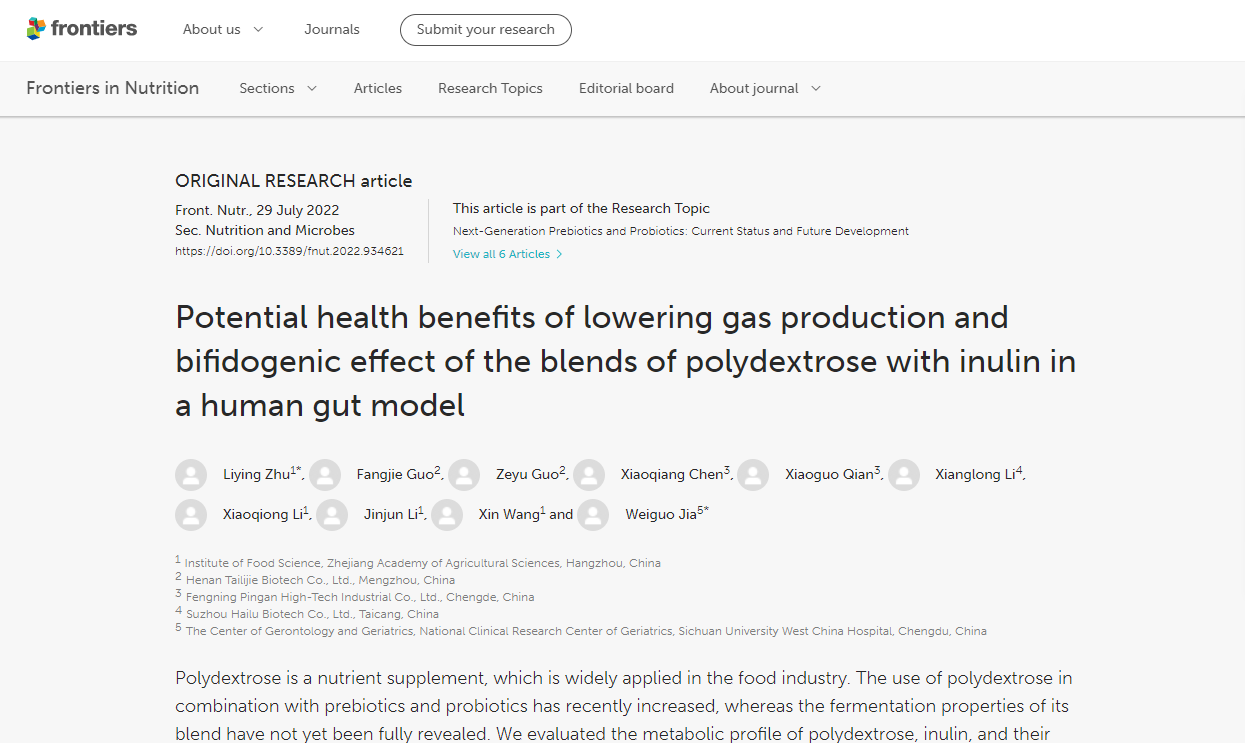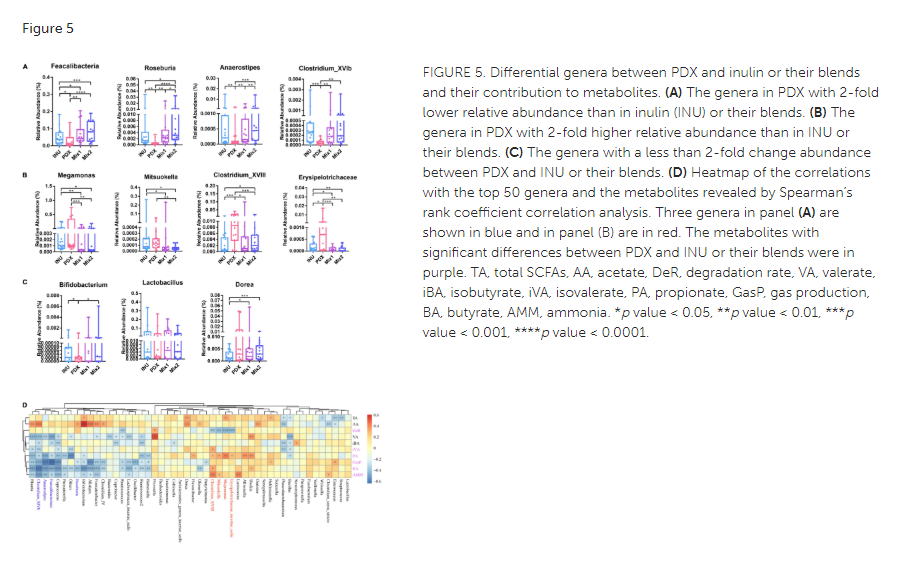Is polydextrose a prebiotic?

Recently, the team of Professor Wang Xin from the Institute of Plant Protection and Microbiology, Zhejiang Academy of Agricultural Sciences, and Henan Tailijie Biotech Co Ltd. jointly participated in the research on the prebiotic effect of polydextrose mixed with inulin, which was published in Frontiers magazine.
Polydextrose (PDX) is widely used in food industry as a nutritional supplement. As a soluble dietary fiber and prebiotics, the energy is only 1 KJ/G, and it is easily soluble in water.; In most systems, polydextrose shows similar rheological properties to sucrose,it can replace part of sugar and fat, has the effects of improving the texture and the taste of food, and has refreshing taste; High dietary fiber content (more than 95%).
Henan Tailijie Biotechnology Co., Ltd., the team of Professor Wang Xin, Institute of Plant Protection and Microbiology, Zhejiang Academy of Agricultural Sciences,the National Geriatrics Research Center of West China Hospital of Sichuan University,the Department of Gastroenterology of the First Affiliated Hospital of Nanjing Medical University and other institutions,evaluated the fermentation characteristics of polydextrose and its mixture with inulin by in vitro comparison. Polydextrose (PDX) is a prebiotic that has multiple benefits for colon health.
Thirty years ago, polydextrose (PDX) was approved by the FDA as a dietary fiber for use as a nutritional supplement, texturizer, stabilizer or thickener, humectant. Today, it is widely used in the food industry.
Early research suggests that polydextrose (PDX), due to its ability to be partially fermented in the distal colon,polydextrose has various health benefits, such as increasing stool volume, softening stool, and lowering stool pH.
Recent animal and human trials have shown that polydextrose (PDX) also has other health benefits, such as relieving constipation, increasing satiety, improving postprandial blood sugar, and the ability to absorb minerals from the colon.
In rats, PDX treatment restored TNBS-induced colonic damage. In vitro, PDX fermentation has an anti-colon cancer risk effect.
A total of 15 healthy volunteers between the ages of 25 and 60 were recruited for the study. All volunteers ate traditional Chinese food, and none claimed to be vegetarians.
Donors received neither antibiotics nor prebiotics or prebiotic treatment at least three months prior to sample collection. The effect of prebiotics was evaluated by batch fermentation of fifteen human faeces.
Compared with inulin and fructooligosaccharides, PDX stimulated more gas production and the productio and isovaleric acid, after 24 hours of fermentation.

Furthermore, PDXs degradation showed the slowest rate of all tested carbohydrates, which is consistent with the property of PDXs fermented in the distal colon section.
Although the fermentation shows a delayed character, the metabolic yield of PDX is similar to that of inulin, in particular resulting in more butyric acid. On the other hand, the mixture of inulin and PDX shows a bifurcation similar to that of inulin and suggests a potential bifurcating factor.

Regarding the prebiotic properties of polydextrose, Mead Johnson has been widely used in milk powder.





